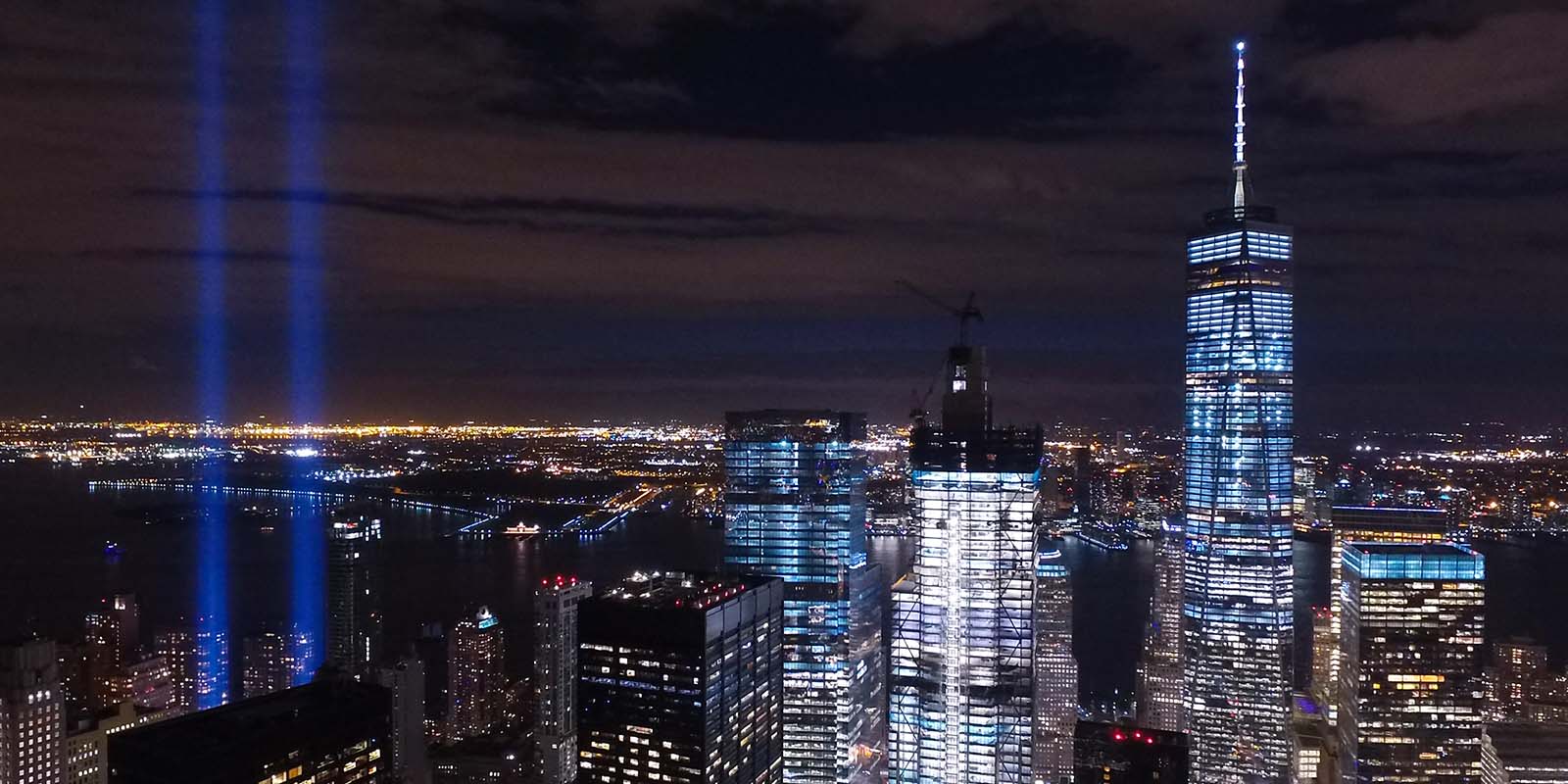No matter the crisis, AFSCME members serve selflessly


Twenty years after 9/11, we remember the brave AFSCME front-line heroes who served that day. AFSCME EMS professionals, health professionals, public safety workers and countless others did what AFSCME members do every day – they put their communities first despite danger to themselves.
In March 2020, a small cadre of AFSCME members who served on Sept. 11, 2001, found themselves facing another national tragedy: the coronavirus pandemic. Unlike 9/11, though, the pandemic continues to rage 18 months after it began.
Yet the commitment to service that AFSCME members like respiratory therapist Andrea Murphy, of Local 768 (District Council 37), displayed during both crises didn’t waver, even if the horrors of those two events will stay with her forever.
“On 9/11, I was working in a hospital in the city,” recalls Murphy, who was working on a burn unit at the time. “Over the course of that day, the hospital became like a M.A.S.H unit. [Patients] came through the emergency department and you’d have to get them intubated.”
Patients suffering from severe burns had also inhaled ground up glass and dust. They required heavy sedation and the expertise of respiratory therapists like Murphy.
“Many of those patients didn’t make it,” remembers Murphy. “When you have so many patients, it’s like you go into automatic mode. We do not have time to think about it. We just do what we’re there to do and wait for later in the process to think about it. I never wanted to see anything like that again.”
And yet as the pandemic hit New York City, Murphy and her co-workers found themselves facing another tragedy so great and long-lasting that it made 9/11 look like a “regular day.”
“I have never in my whole career – and I’ve worked in critical care for 30 years – I’ve never seen anything like this pandemic,” says Murphy.
Since COVID-19 is a respiratory virus, respiratory therapists like Murphy have become the tip of the spear of this health care crisis.
“We didn’t know what we were dealing with. We just knew we had to get these patients breathing,” says Murphy. “They would come in and be so critical, they couldn’t oxygenate. We had to intubate them and take away the work of breathing. We’d sedate them and keep them on the ventilator.”
Understanding the best way to treat patients while fearing for their own safety was one challenge. The other challenge? The volume of patients her team was facing.
“There were so many of them – it was every five minutes. The person working in the ER would settle patients, then you’d connect the vent, then take them back down and five minutes later another patient would arrive,” she says.
Murphy says she made it through the pandemic because “we had a remarkable team, and the hospital also took care of us. They supported us all the way.”
Just like on 9/11, Murphy’s professionalism didn’t waver, though that does not mean the pandemic hasn’t also taken a toll.
“We didn’t process what we were going through at the time. You can’t think about what’s happening. You just have to do your job and stay focused on keeping patients alive. It’s not until after everything we started to realize: ‘Oh my God, this really did happen.’”
In early 2021, Murphy said, “We heard [cases] were coming back again. I said to one of my co-workers: ‘Can I do this again?’”
And while subsequent waves have not hit her Harlem hospital as hard as the initial wave, and treatment measures for patients have improved, Murphy knew that she would handle whatever came her way – just as they did on 9/11.
“We show up no matter what. We all have a job to do. New Yorkers are resilient,” she says. “I think we did a pretty good job of handling it.”
Serving through crises isn’t something AFSCME members choose. But when they’re needed, they always answer the call.